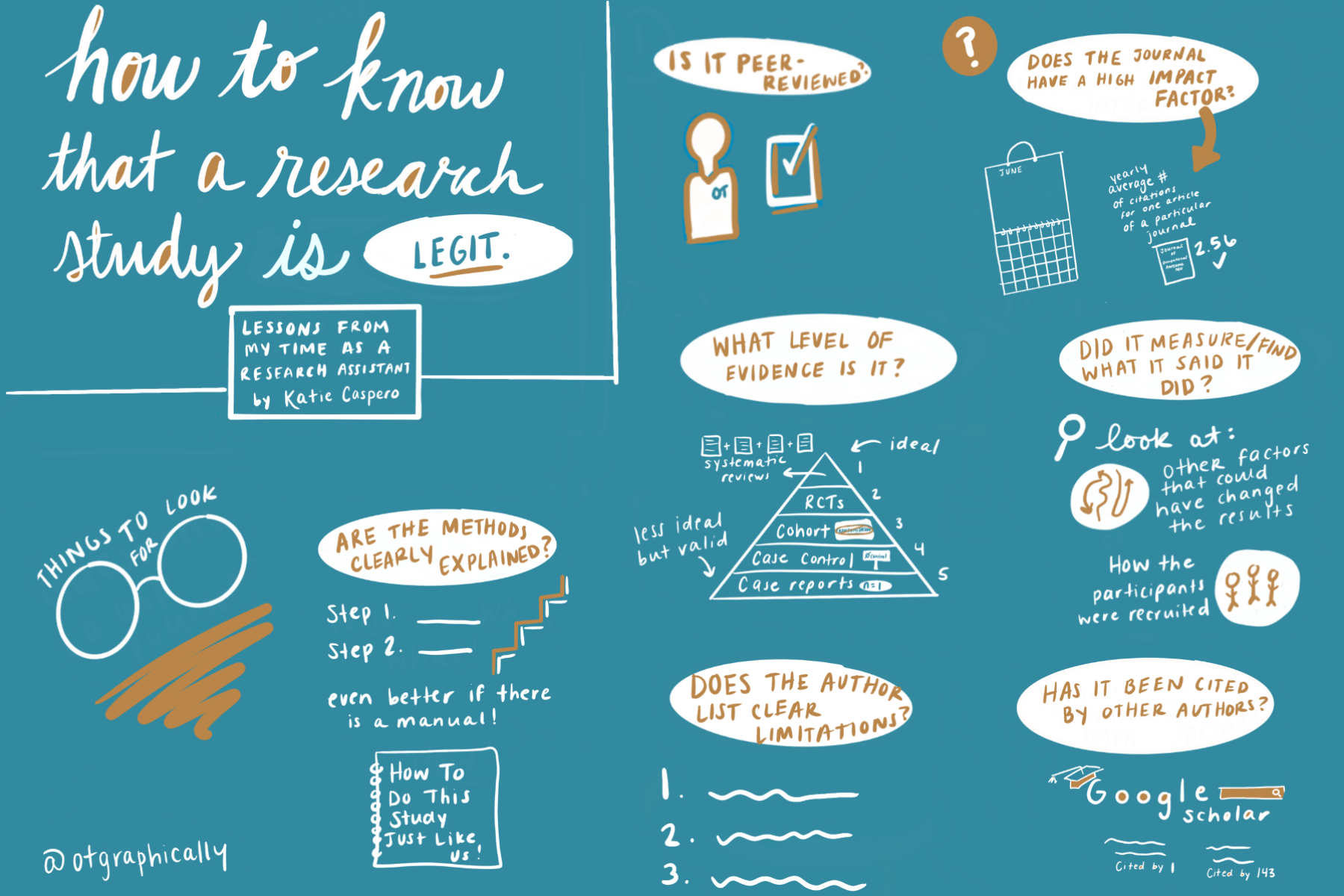Why it is so important to know if a research study is legit
It can change the way you use the information
Without taking a critical view of an article, I have fallen into the trap of taking the author’s word for it by just reading the discussion, which can be dangerous.
Why?
If you read the discussion and takeaways and the authors report positive results but do not consider the biases, you may be more likely to use biased or premature information.
It can impact a healthcare client’s care
If the results of the study do not generalize to the greater population, you may be thinking the information will impact clients' care. However, it might not because of your client’s specific situation including their population, age, or demographics. (This argues for the need for more practice-based evidence and evidence-informed practices so we have more real-world data included in our research.)
It could make the outcome worse instead of better
A lot of times I am not aware of or have not used the assessments I am reading about and that can lead to potentially interpreting the results incorrectly.
For example, if a lower assessment score means a client improved but I am not aware of that, it may result in me flipping the information to be not improving versus improving.
It can impact the value of your profession
If clients don’t improve with the evidence that is used and it takes longer or is not effective, this negatively impacts the effectiveness of a profession as a whole. It can reduce the credibility of the benefit of the service and result in lower reimbursement and support within the interdisciplinary community.
It will allow you to feel confident that you are giving the best care
When you know a study is legit you can feel confident and not have to worry as much about whether you are using the best intervention. There is still work to be done with adapting it to the client’s values and context (this should be done before searching as well) but you can feel at ease that you are updated on what is best practice.
It will provide fewer headaches from insurance companies
When using legit evidence you won’t have to prove yourself as much.
When I have received a peer reviewer request asking me to provide evidence, I have it at my fingertips and do not have to worry about finding proof for something because it is already something I have looked into.
However…
Evidence-based practice is not straightforward either, as I wrote about in a previous blog post.
Also, practice-based evidence is gaining more popularity as it is more focused on the client's values which is part of the three-part stool of EBP.
Lastly, the impact of the lack of diversity included in research demographics does not allow for translating the information to many of the clients we are working with day to day.
So how do I get started?
I created this infographic below to help guide some questions to ask when reading an article. These are important components that may lead to bias but they are not the only items to consider.
I’ve also created an Article Critical Analysis Checklist which you can access here.
What other impacts do you see about knowing if a study is legit or not? Share your thoughts below.


